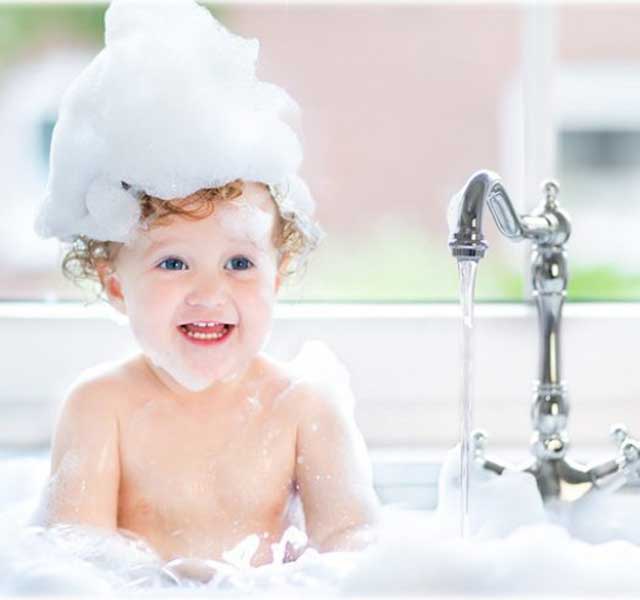What is VOCs & How to Remove VOCs from Water?
VOCs in water is a potential health hazard because many of the chemical components are carcinogenic. Therefore, VOC removal is a necessity if you are concerned about having safe drinking water in your home. Since this chemical contaminant is mostly man-made, detection of VOC in water indicates a chemical spill or other related industrial activities. Before we see how to remove VOC from your water, let’s go over some basics.
What is VOCs?
The term VOCs is an acronym that stands for Volatile Organic Compounds. This group of organic compounds is volatile because it has high vapor pressure and a low boiling point that is below the freezing point of water. VOCs are likely to change state. They readily evaporate into the atmosphere at room temperature, and they become dangerous when they do. Taste and odor are other properties of VOCs. In most cases, their taste is sweet, and their odor is either pleasant or strong, depending on the particular organic compound.
Sources of Water VOCs
VOCs can exist naturally; like those released from plants. One of such examples is the smell from freshly mowed grass, which is known as Green Leaf Volatiles (GLVs). When they occur naturally, they are not immediately dangerous or hazardous to humans. But when they occur as a result of human activities, they tend to pose a threat to human health.
We can find VOCs in numerous commercial, industrial, and residential products such as gasoline, solvents, cleaners and degreasers, paints, inks and dyes, and pesticides. They enter into the environment as a result of human activities such as spillage or inappropriate disposals, which causes the chemical to find its way into the ground. When released into the environment, VOCs makes its way deep into an aquifer in the form of a non-aqueous phase liquid (NAPL), evaporating low concentration of VOCs as it moves through the subsurface.
The most common VOCs in water in our environment is mostly from petroleum products like gasoline and diesel. Although most VOCs in water have an odor, to accurately detect the actual concentration of VOCs in water, a thorough sampling and testing must be carried out.
Effects of VOCs In Water
The harmful health risks associated with VOCs depend on factors like the means, level, and duration of exposure. However, having more than one type of VOCs in your water has resulted in a variety of potential health risks. Despite on-going researches, so much remains unknown about the health effects that occur from the level of organics generally found in our homes.
So are VOCs bad for you? How do VOCs affect human health?
Well, exposure to a low concentration of VOCs for a long time can lead to an impairment on the functioning of the immune system. The United States Environmental Agency (EPA) has stated that exposure to VOCs can likely lead to irritation of the eye, nose, or throat, including headaches, loss of coordination, nausea. Other possible risks are; damage to the liver, kidney, or central nervous system. There are also VOCs linked to being the cause of cancer in humans. Inhalation is considered to be the primary means that VOCs enter the body, but notwithstanding, food and water ingestion also pose as another viable means of exposure.
How Do VOCs Get Into Water?
One of the several ways VOCs get into drinking water is through spillage or improper disposal. Whenever there is an oil spillage or improper disposal of chemicals containing VOCs, the organic chemicals make their way into the ground following gravity. Then with the help of rain, melting snow, or water, they seep deeper into the ground, and probably into private wells or major water supplies.
As volatile organic compounds that vaporize at normal atmospheric temperatures, they also have significant tendencies of getting dissolved in water when they evaporate, and possibly, transported through water channels to municipal water.
How You Can Find out If Your Water is Contaminated with VOCs
An estimate by U.S. EPA shows that VOCs contaminates one out of every five national water supplies. That is, 20% of the nation’s water supply; private or public, are affected by one or more of 55 tested Volatile Organic Compounds at an assessment level of 0.2 micrograms per liter.
To know if your water has been contaminated with VOCs, take a sample of your water to an accredited laboratory for VOCs in water analysis. You can easily find accredited labs near you to get information on all you need to test your water for VOCs.
How to Remove VOCs from Water
Testing your water to determine the type and level of VOCs present in the water is essential to determining the method of VOCs removal to employ. While it is better to treat VOCs contamination from the source, in so many cases, it is impossible. So, if you are suspicious or worried about VOCs in your water, then you might want to consider installing a home water treatment appliance.
However, to make the right decision on a water treatment appliance that will provide the best value for your money, it is advisable to get your water tested. If it is from a public well, you should check your utility confidence report to know the type of VOCs present in your water. Water supply facilities are bound to provide such reports by law. Having taken those steps, ensure that the device that you are getting is independently certified to remove the type of VOCs that you have identified in your water.
Some home VOCs water treatment options include:
Installation of a point-of-entry filtration Appliance
This water treatment option will remove VOCs from your water, providing safe water for drinking, cooking, bathing, and laundry to your entire home, unlike point-of-use appliances.
Gravity-fed water filtration is another option for drinking water: you can also consider installing an appliance like the Smyth/Cid Filtration System. These devices are efficient in removing about 98% known types of VOCs from your water, so they are recommended for daily and emergency home usage.
Other options of removing VOCs from your water requires removing it from the source, and this involves the construction of safe, uncontaminated wells. When new wells can be constructed immediately, you can consider connecting to a safe Aquifer or public well.
Seeing the rate of exposure to VOCs we face every day and the harmful effects of such exposure, it is highly recommended to seek the services of a professional in installing a VOCS water treatment appliance, to keep you and your family healthy and safe always. Plumber Mate is only a phone call away. Contact us today.


